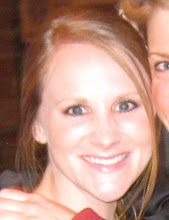 The Good: Houghton Mifflin Harcourt--Mariner Books
The Good: Houghton Mifflin Harcourt--Mariner Books http://www.houghtonmifflinbooks.com/mariner/
The website for Mariner Books has their content information divided among three main audiences; booksellers/media, librarians/teachers, and reading groups. These audiences are clearly highlighted in the second main row of text on the website, which allows for easy access to the information that each specific website user would be interested in locating.
Booksellers/MediaFor booksellers and media, Houghton Mifflin Harcourt has provided their users with images, catalogues, press releases, excerpts,forums, newsletters, and FAQs. The FAQ section provides the user with answers to questions about domestic trade and reference orders, accounts, and returns; special sales information, school supply and office product inquiries; distribution; international sales; subsidiary rights; review copy requests and publicity inquiries; library promotions; and electronic data.
Librarians/TeachersAll of the materials and information that educators and librarians would be interested in, are listed and made readily available for their use. There is a catalogue of home-based education books, a recent Mariner Books catalogue, reference resources, a long list of teachers resources, newsletter subscriptions for five different categories,and forums to share stories.
Reading GroupsReading groups for fiction, nonfiction, and young adult can access featured reader's guides, newsletters, and forums.
About Us/FAQOf course the people of Mariner Books don't forget about all of the author's who are waiting to be published. Submission guidelines and information on how to find or be your own literary agent is available. I like that Houghton Mifflin took the time to suggest where to find a literary agent. This is more personal than just blatantly informing the author that they unfortunately aren't able to accept unsolicited manuscripts.
Houghton Mifflin even provides an address for readers or anyone who would like to write to an author. This could be an attractive aspect for author's who are hoping to receive fan mail.
The publishing house is also providing information to anyone who is searching for a job with them. This section is pretty basic and similar to most of the other publishers websites.
 The Bad: Harper Perennial
The Bad: Harper Perennial Unlike Mariner Books, Harper Perennial never states who their audiences are. They have two broad categories of "Books" and "Authors."
"Books"The "Books" section provides basic information (ISBN, price, book description, publication date, and the formats that the book is avilable in)on new releases (books published in the past two months), a full list of titles, award winning books, publications to be released in the next ninety days, and reading guides.
All of this information is primarily geared towards current readers and prospective readers. Harper Perennial provides links to Olive TV, The Oliver Reader blog, the book army, FiftyTwoShortStories.com (a free story for each week).
"Authors"The "Authors" section is very basic as well. There is a full list of authors and an events calendar. While this section is coined "Authors" it is also geared towards readers. There is a "hot chapter" and "author tracker" available for users to subscribe to. Both of these subscriptions provide users with information on upcoming events, promotions, and new books.
Mariner Books provides a huge list of press releases for the media to use as they like. Harper Perennial only provides users with essays and interviews from the authors.
Harper Perennial is attractive to look at and easy to use, but they fail to provide information for a well rounded audience. The potential author and the media are ignored. It appears that Harper Perennial is most concerned with their current readers and they market to them very well. In my opinion, ignoring all other markets isn't wise and beacuse of this, I have labled Harper Perennial as a bad website.












